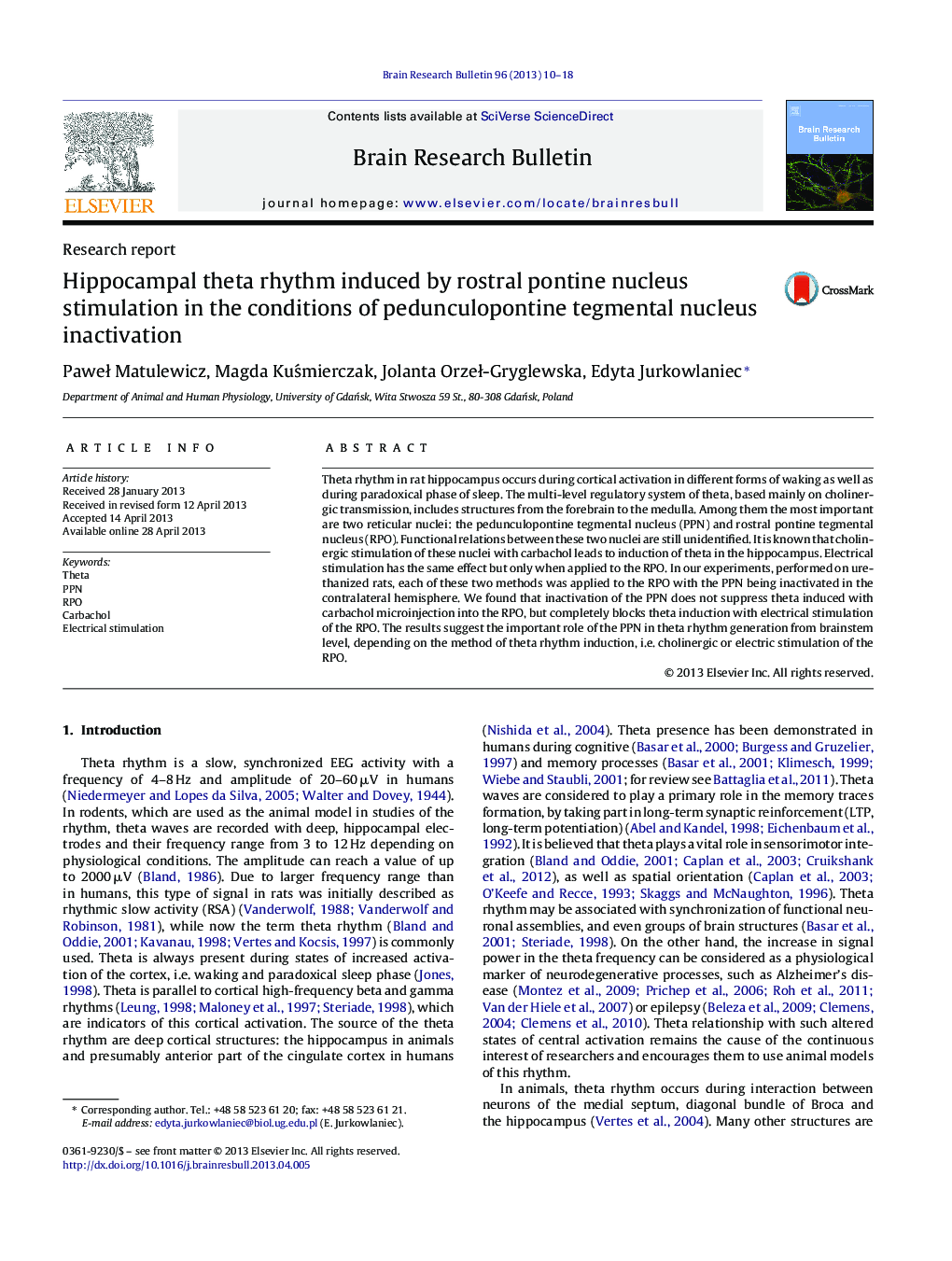| Article ID | Journal | Published Year | Pages | File Type |
|---|---|---|---|---|
| 4318948 | Brain Research Bulletin | 2013 | 9 Pages |
•For the first time different effects of temporal inactivation of the PPN on theta rhythm induction from the RPO was found.•The inactivation of the PPN does not suppress theta induced with carbachol microinjection into the RPO.•The inactivation of the PPN completely blocks theta induction with electrical stimulation of the RPO.
Theta rhythm in rat hippocampus occurs during cortical activation in different forms of waking as well as during paradoxical phase of sleep. The multi-level regulatory system of theta, based mainly on cholinergic transmission, includes structures from the forebrain to the medulla. Among them the most important are two reticular nuclei: the pedunculopontine tegmental nucleus (PPN) and rostral pontine tegmental nucleus (RPO). Functional relations between these two nuclei are still unidentified. It is known that cholinergic stimulation of these nuclei with carbachol leads to induction of theta in the hippocampus. Electrical stimulation has the same effect but only when applied to the RPO. In our experiments, performed on urethanized rats, each of these two methods was applied to the RPO with the PPN being inactivated in the contralateral hemisphere. We found that inactivation of the PPN does not suppress theta induced with carbachol microinjection into the RPO, but completely blocks theta induction with electrical stimulation of the RPO. The results suggest the important role of the PPN in theta rhythm generation from brainstem level, depending on the method of theta rhythm induction, i.e. cholinergic or electric stimulation of the RPO.
